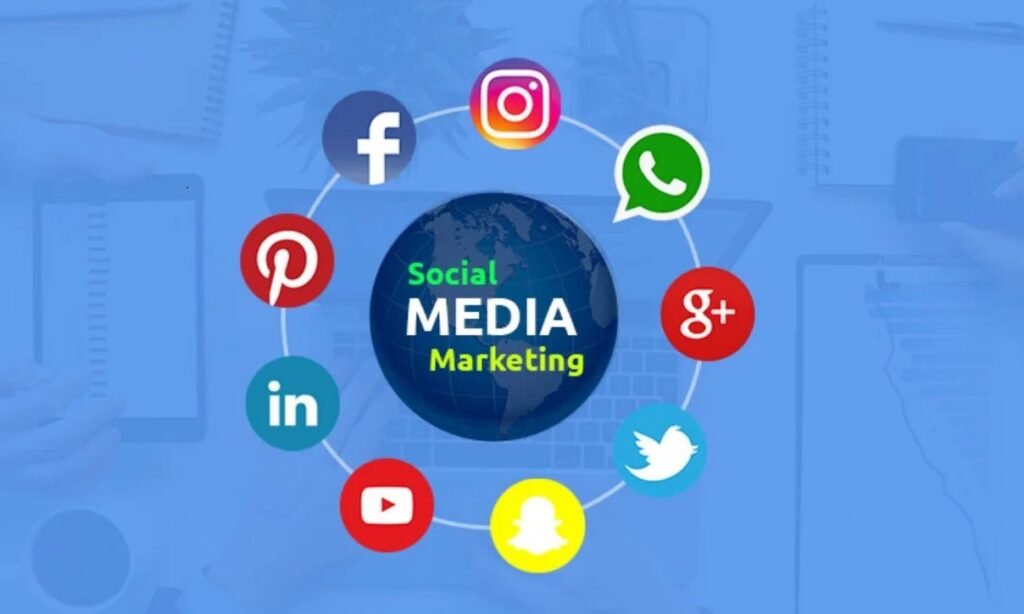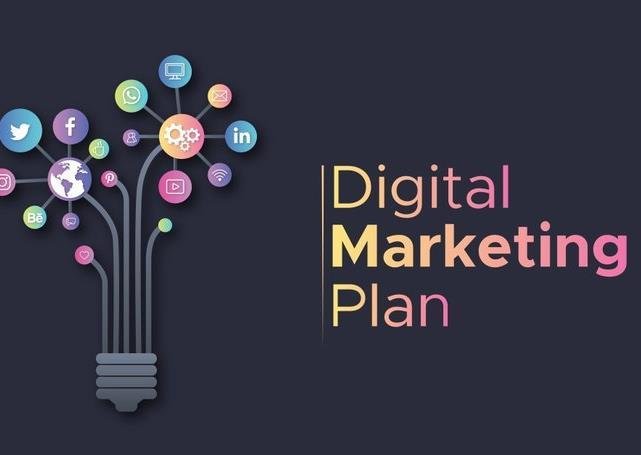Introduction
A well-crafted digital marketing plan is essential for any business looking to grow online. It serves as a roadmap for achieving marketing goals, reaching target audiences, and maximizing return on investment (ROI). In this guide, we will explore how to create a winning digital marketing plan that drives success.
What Is a Digital Marketing Plan?

A digital marketing plan is a strategic document that outlines a company’s online marketing goals, target audience, strategies, and key performance indicators (KPIs). It integrates various digital marketing channels such as SEO, content marketing, social media, email marketing, and paid advertising to create a cohesive strategy.
Benefits of a Digital Marketing Plan
- Provides clear objectives – Helps define measurable marketing goals.
- Improves audience targeting – Ensures marketing efforts are reaching the right people.
- Enhances brand visibility – Strengthens online presence and brand awareness.
- Boosts ROI – Helps optimize spending for better returns.
- Ensures consistency – Creates a uniform marketing approach across all channels.
Key Steps to Creating a Winning Digital Marketing Plan

1. Define Your Business Goals
- Identify what you want to achieve (e.g., brand awareness, lead generation, sales growth).
- Align marketing goals with overall business objectives.
- Set SMART (Specific, Measurable, Achievable, Relevant, Time-bound) goals.
2. Understand Your Target Audience
- Conduct market research to identify ideal customers.
- Define buyer personas based on demographics, interests, and behavior.
- Use tools like Google Analytics and social media insights to analyze audience behavior.
3. Analyze Your Competitors
- Identify top competitors in your industry.
- Analyze their digital marketing strategies (SEO, social media, paid ads).
- Find gaps and opportunities to differentiate your brand.
4. Choose the Right Digital Marketing Channels
a. Search Engine Optimization (SEO)
- Optimize website content with relevant keywords.
- Improve site speed, mobile responsiveness, and technical SEO.
- Build backlinks to improve domain authority.
b. Content Marketing
- Create high-quality blog posts, videos, and infographics.
- Develop an editorial calendar for consistent content posting.
- Focus on providing value to your audience.
c. Social Media Marketing

- Choose the right platforms (Facebook, Instagram, LinkedIn, Twitter, TikTok).
- Engage with followers through regular posts and interactions.
- Utilize social media ads to expand reach.
d. Email Marketing
- Build an email list through lead generation tactics.
- Send personalized emails based on user behavior.
- Automate email campaigns to nurture leads.
e. Pay-Per-Click (PPC) Advertising
- Run targeted ads on Google Ads, Facebook, and LinkedIn.
- Set clear budgets and monitor ad performance.
- Use retargeting ads to convert potential customers.
5. Develop a Content Strategy
- Plan content themes aligned with business goals.
- Utilize blog posts, videos, webinars, and e-books.
- Optimize content for SEO and shareability.
6. Set Your Budget
- Allocate funds for paid advertising, content creation, and marketing tools.
- Monitor spending to ensure maximum ROI.
- Adjust the budget based on campaign performance.
7. Implement Marketing Automation Tools
- Use tools like HubSpot, Mailchimp, and Google Analytics.
- Automate repetitive tasks (e.g., email campaigns, social media posting).
- Track marketing performance in real-time.
8. Measure and Optimize Performance
- Track KPIs such as website traffic, conversion rates, and engagement.
- Analyze data using Google Analytics, SEMrush, and social media insights.
- Continuously refine strategies based on performance metrics.
Also Read : How Can You Improve Your Digital Marketing Skills?
Conclusion
A winning digital marketing plan requires careful planning, execution, and optimization. By setting clear goals, choosing the right channels, and leveraging data-driven strategies, businesses can improve their online presence and maximize ROI. Regular monitoring and adjustments will ensure long-term success in the digital landscape.
FAQs
1. How long does it take to see results from a digital marketing plan?
Results vary based on strategy and industry. SEO efforts may take months, while paid ads can show immediate results.
2. What are the most effective digital marketing channels?
SEO, content marketing, social media, PPC, and email marketing are among the most effective digital marketing channels.
3. How often should I update my digital marketing plan?
Your plan should be reviewed and updated at least quarterly to stay aligned with business goals and market trends.
4. What budget should I allocate for a digital marketing plan?
Budgets vary depending on business size and goals. Start with a modest budget and scale as you see positive ROI.
5. Can a small business succeed with digital marketing?
Yes! Small businesses can leverage SEO, social media, and content marketing effectively without a large budget.
